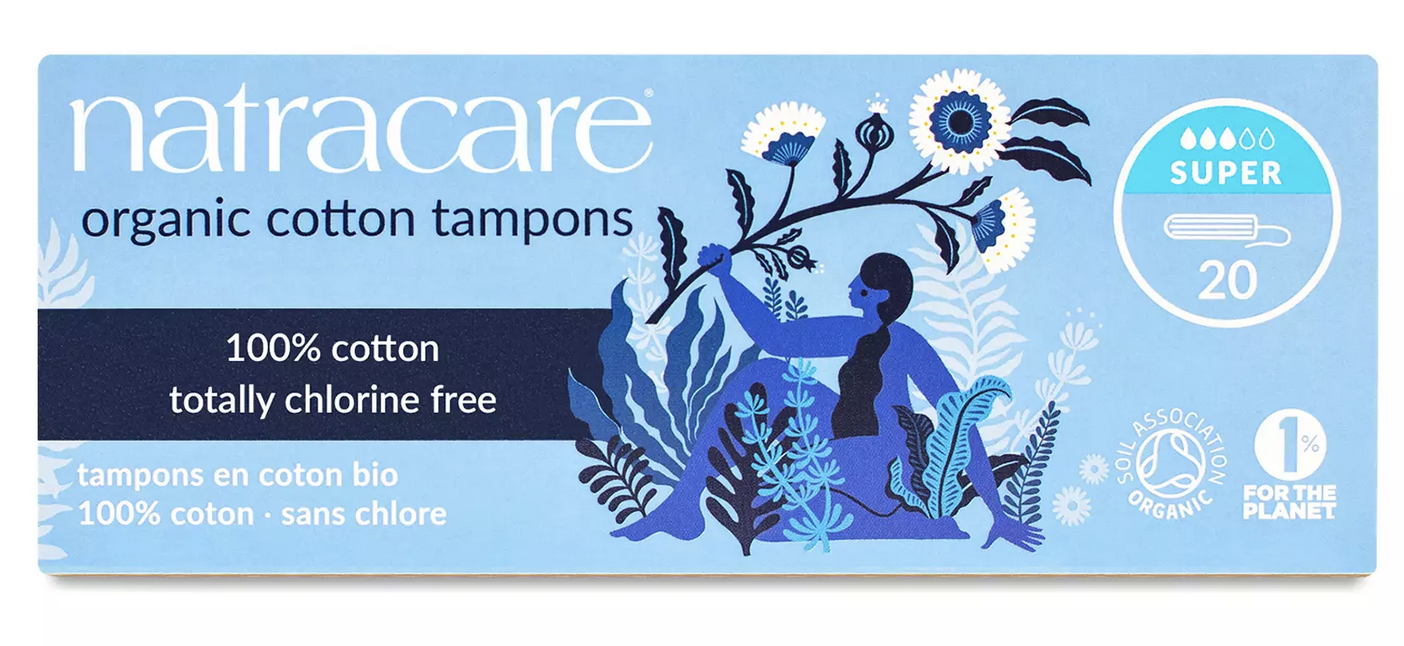By Allison, Customer Service Specialist & Low-Waste Enthusiast
Period product waste may not be the first thing that comes to mind when you think of eliminating waste and helping the environment, but globally, 200,000 tons of period related waste accumulates every year! Fortunately, there are a variety of options when it comes to sustainable period products - varying from reduced waste to zero waste. Remember! It’s not about committing to zero waste 100% of the time! Small mindful choices to reduce waste do indeed help minimize overall waste. High-waste menstrual products include tampons with plastic applicators and single-use pads; luckily sustainable products have become more accessible.
If you’re interested in moving towards lower waste options, but still need the convenience of traditional period products, then biodegradable (cardboard applicator) tampons, applicator free tampons, or reusable tampon applicators might be the right fit for you. Applicator-free tampons are also more affordable than applicator tampons.
Menstrual disks are another low to no waste option. They are available in both disposable and reusable varieties. There is a bit of a learning curve when it comes to insertion, but one advantage of menstrual disks is that they can be worn for more than eight hours, unlike tampons which pose the risk of toxic-shock-syndrome with extended wear. Menstrual disks may also be confused with menstrual cups. Aside from shape, one of the key differences is that menstrual disks do not create suction around the cervix, making it a better option for people with IUDs - suction can pose a small risk to IUD stability.
Menstrual cups are a no-waste period product that can be inserted into the vagina and create suction around the cervix. This makes menstrual cups an effective leakproof option. Though, there is also a learning curve when it comes to proper insertion, so it might be a good idea to use a backup panty liner for the first couple cycles after making the switch. Menstrual cups also come in different sizes depending on individual anatomy and previous vaginal childbirths.
Another no-waste option is reusable washable pads. Many people find these pads to be less irritating to the skin than disposable pads. However, some do find them a bit more bulky - though reviews on that are mixed. Using these is very similar to disposable pads, except after use: just rinse with water; place them in a mesh/delicates laundry bag; and wash with detergent in your usual washing machine. Be sure to skip the fabric softener though - it will reduce the absorbency of the material.
Period underwear is another no-waste option, very similar to washable pads. An added bonus to period underwear is that they’re leakproof, unlike washable pads.
It’s also possible to incorporate different sustainable products in different situations. For example, wearing reusable pads or period underwear at home or to bed, but using tampon options while you are on the go, running errands or at work. Menstrual cups are a safer choice than tampons for times when you need coverage for more than 8 hours at a time. Mixing and matching is encouraged!
Shop all menstrual care on our website: www.cambridgenaturals.com/shop


